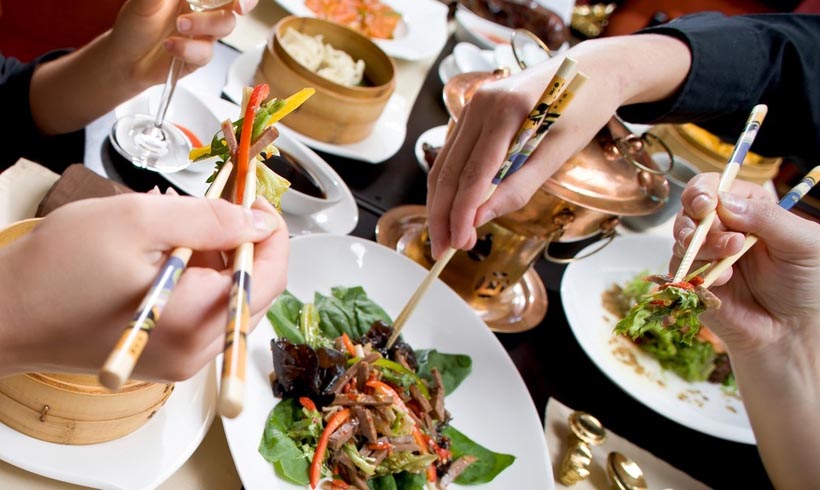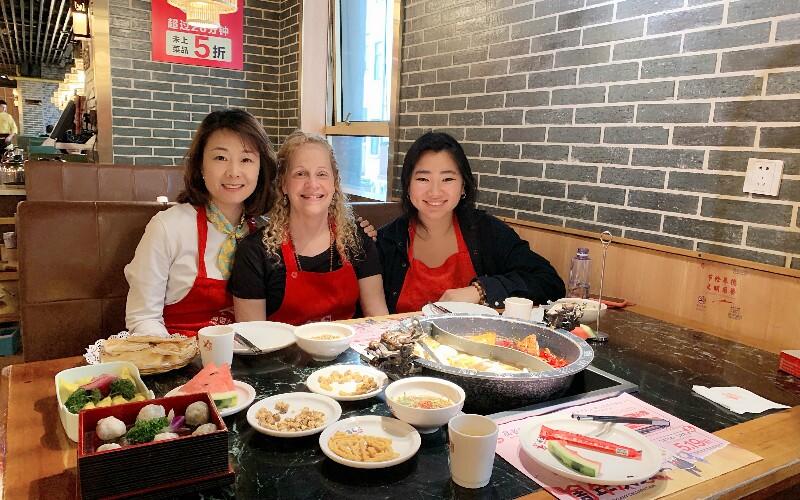20 Recommended Tips To Taste the Best Dishes Across China
20 Recommended Tips To Taste the Best Dishes Across China
Blog Article
Top 10 Tips For Bargaining Etiquette In China
1. Tip: Negotiate higher by starting low and remaining respectful. To prove that you're serious about your offer, be professional but courteous.Pro: Helps you establish your position, without causing offence to the seller.Pros: Starting with a low price can frustrate sellers, especially in cases of selling items with smaller margins.
2. Find out the market valueTo avoid paying excessively, you should research the cost of a typical purchase before you make a purchase.Pro: Gives you security and helps prevent scams.Pros: The research process can be lengthy, especially when it comes to a unique or handmade items.
3. Show Genuine InterestTip: Sellers will negotiate more if you show an actual interest in purchasing.Pros: Improves your relationship and gives you a better likelihood of landing a deal.Arousal: Excessive enthusiasm can signal a willingness to pay higher prices and weaken your case.
4. Step Away StrategicallyTip: If the price isn't coming down take a step back gradually. Sellers might call you back and offer a higher price.Pro: It's an effective strategy to get the most competitive price.Con: Can be detrimental, especially when a seller doesn't want to lower their price. This is especially true for highly demanded items.
5. Learn Basic Mandarin PhrasesTip: Phrases like "Tai gui le!" (Too expensive!) It is also possible to use the phrase "Pianyi ba yidian" (Can you cut down on the cost?) Make an effort.Pro: Personalizes the negotiation and softens the seller’s stance.Cons: Limited language may hinder more complicated negotiations.
6. Be patient and CalmNegotiations are lengthy. Do not appear anxious by retaining a calm demeanor.Pro: Sellers are more likely be able to reward buyers who are patient and calm by offering them better deals.Con: Takes time and energy, particularly in busy markets.
7. Bring CashCash payments are more likely be accepted by retailers than digital ones.Pros: Cash offers made immediately can be used to secure discounts from smaller vendors.Con: Pickpockets could make it unsafe to carry cash at markets.
8. Discounts on Group ReservationsTip: If buying multiple items, request a bulk discount.Pro: Increases your power of bargaining and ensures you get a good deal.Cons: Purchases could be more expensive than you will need, and they may not be the best fit for your requirements.
9. Don't be Afraid of Saying NoTips: Be polite and decline and leave if you are able to determine that the seller did not lower the price.Pro: This helps to avoid buyer’s regret. It also ensures that you are within your budget.Cons: You could not get a product you've always wanted.
10. Know When Not to BargainDepartment stores or boutiques with high-end prices is not a good place to find bargains.Pro: Avoids embarrassment, and maintains respect for the cultural differences.Con: Certain settings limit your ability to bargain.
Benefits of bargaining in ChinaReduces Cost: Negotiating is a great way to significantly reduce the cost of items.Cultural Experience: Engaging in bargaining gives insight into local traditions and customs.Personal interaction creates a connection with Local SellersPros and Cons of Bargaining in ChinaThe process of bargaining can be lengthy for shoppers who are new particularly.Language Barriers: Communication can be difficult if you do not have a good understanding of Mandarin.For some, it can be stressful. There are some who do not like the back and forth of bargaining.These suggestions will help you navigate Chinese markets with confidence and feel the joy of haggling. See the most popular discover China culinary delights for site tips including a deep dive into China food culture, culinary wonders of China, taste the best dishes across China, a guide to eating like a local in China, discover the tastes of China cities, culinary wonders of China, delicious Chinese dishes to try, a guide to China food scene, uncover China food traditions, a culinary journey through China and more.
Top 10 Tips For Visiting Famous Temples In China
1. You are required to observe the rules and customs of the temple. Follow them even if you are participating in sacred ceremonies or going into sacred places.Pro: Respects local customs and sacred temple space.Con: Trying to learn all the rules can be overwhelming, especially in temples with complex rituals.
2. Be calm and respectful.Tips: Respect the temple by remaining quiet during rituals and while in the temple. Beware of loud laughter and talking.Pro: Creates a peaceful atmosphere for worshippers and shows respect for.Con: You might feel awkward in the silence if unfamiliar with customs or the surroundings.
3. Dress ModestlyDress in modest clothes like long pants or skirts and avoid wearing anything that is too visible. Certain temples offer scarves to cover arms.Pro: Respect for the sacred space and the worshippers who visit it.Con: It may be necessary to pack additional clothes or prepare your trip when it's a hot day.
4. Offers RitualTip: If you wish to participate in an offering (such as fruits or incense), wait for others to complete their rituals, and follow the lead of locals.Pro: It shows that you respect the customs and traditions.Con: If you're not sure of the ritual It may be difficult to be a part of it.
5. Beware of interrupting meditation or prayer.Do not interrupt worshipers when they are meditating or praying. Don't snap pictures or talk to others when you are engaged in spiritual practices.Pro: Shows respect for culture and ensures a peaceful and reverent environment is maintained.Con: Even though you may wish to record some your own moments but it may be an invasion of privacy.
6. Lighting of IncenseTip. Incense burning as part of a Chinese temple ritual is very common. To demonstrate respect to the gods, you can light incense if permitted. In both hands, you should bow as you are offering it.Pro: Shows that you're active in temple practices and respect the traditions.Con: Could be a bit unfamiliar to travellers, and the improper handling of incense could be disrespectful.
7. Do not touch sacred statues and objectsTips: Don't touch holy statues, relics, or temple objects unless you are specifically authorised to do so.Pros: Protects the sanctity of the temple and respect for the space.Con: Confusing if are unfamiliar with the temple boundaries.
8. Beware of Temple HierarchyA tip - In some temples there are various levels of the sanctity of the temple. Avoid walking in front altars or statues depicting sacred figures and be aware of the appropriate place to bow.Pro: You should maintain the appearance of the temple, and be respectful of the temple's decor. This is a sign that you have a thorough understanding of the temple's traditions.Con: Hierarchy might not always be clear. It requires a lot of effort to know what's acceptable.
9. Keep Offerings HumbleTip: When bringing gifts (flowers or fruits, as well as money) Make sure that they are not overly extravagant and follow the local customs. Expensive or extravagant presents may be seen as inappropriate.Pro: Displays humility and respects local customs.Cons: Without guidance from locals, you may be overwhelmed about what service is right for your company.
10. Participate in Temple Events If InvitedTip: Some temples hold ceremonies, prayers or other holidays. If you're invited to participate be respectful and join in, following the crowd's lead.Pro: It connects you with local culture, and engages you in the experience of visiting temples.Con: If you're unfamiliar with the rules It can be uncomfortable to participate in rituals.
The benefits of watching rituals in TemplesThe rituals that you participate in are the best way to get more about the Chinese tradition and culture.Respectful interaction: Engaging with temple staff and other locals in a respectful way can help build positive relations.Participating spiritually or in cultural practices is a rewarding and enriching experience.Memorable Experience: Being part of the temple's rituals will leave lasting memories of your trip.Cons of Observing Rituals in TemplesUnfamiliarity. When guests are new routines can create anxiety and confusion.Cultural blunders: If performed incorrectly, it may cause offense or confusion.Language Barriers: Due to language differences, it could be difficult to understand instructions and ritual significance.Physical Discomfort Some rituals can be physically demanding, such as standing or bowing.If you adhere to these guidelines and pay attention to local customs and customs and customs, you'll be capable of visiting China's renowned Temples and take part in their spiritual practice without inflicting any offense. Check out the best a guide to eating like a local in China for more recommendations including explore the best local eats in China, a taste of China best local foods, culinary experiences across China, explore the best local eats in China, regional Chinese cuisine highlights, the flavors of Chinese cuisine, must-try foods in China, explore China riCh food history, explore local Chinese cuisine, China flavorful food culture and more.